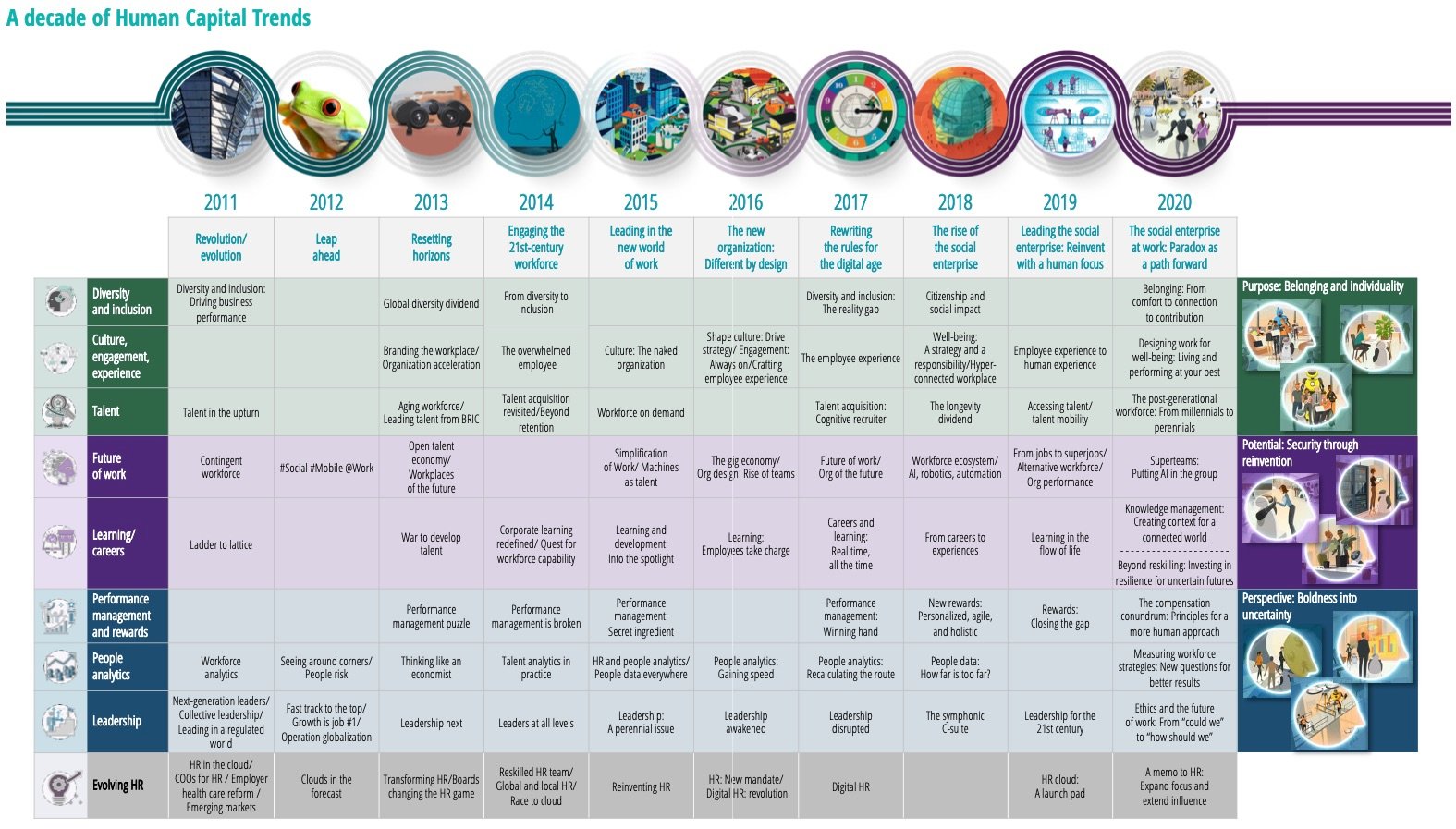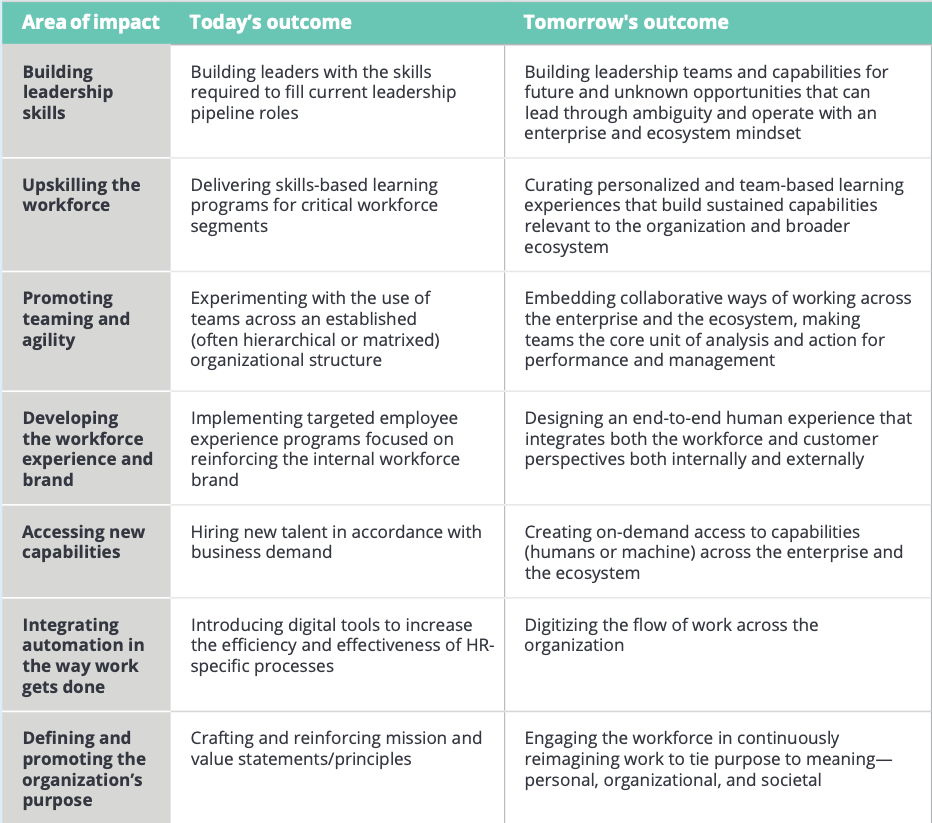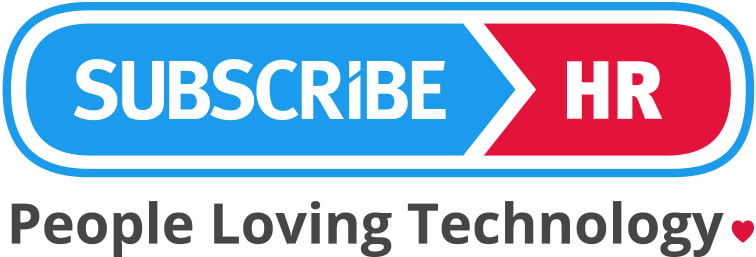Every year, Deloitte conducts an extensive study on the emerging and prevailing trends in human capital and the future of work. Each year, the post we write on our HR blog about that report is always one of the most popular. In 2020, the Human Capital Trends Report highlights an intensifying combination of economic, social, and political issues impacting HR and business leaders. These factors continue to put pressure on businesses to operate in a more socially oriented manner (a continuation of 2019's trend, which we covered in a previous HR blog post), and to reinvent their organisations around a more ethical and human focus. Let's take a look at the highlights of this year's report and discover the HR metrics that matter in 2020 and beyond.
The Continuing Rise of the Social Enterprise
In this year’s Global Human Capital Trends report, Deloitte calls upon organisations to embrace paradox as a pathway forward and focus on these three attributes:
-
Purpose: An organisation that doesn’t just talk about purpose, but embeds meaning into every aspect of work every day.
-
Potential: An organisation that is designed and organised to maximise what humans are capable of thinking, creating, and doing in a world of machines.
-
Perspective: An organisation that encourages and embraces.
The reason? These characteristics embody what it means to align people and technology to perform as a social enterprise at work.
The key question that arises in light of this perspective (and as a natural consideration based on the results), is how can organisations retain their humanity in a technology-driven world?
The answer lies in the fusion of technology and humanity in the context of the social enterprise and executed in a manner that intelligently considers, assesses and implements the human-automation collaboration. Getting it right will require sound, intelligent, well-researched and well-planned implementation by HR professionals and leadership.
Designing The Human-Automation Collaboration
Deloitte's research and our lived experience reconfirms that the future of work fuses the human and the technological. In order for people and organisations to overcome the most challenging conflicts that exist in managing the human-automation collaboration, businesses need to make the following three bold shifts:
-
Fostering belonging amid a desire for individuality.
Technology creates a world where anything and everything can be individualised; yet humans desire a sense of belonging to a larger whole. The 2020 survey results reinforce that belonging is a significant concern. Seventy-nine percent of respondents said that 'fostering a sense of belonging in the workforce' was important or very important to their organisation’s success in the next 12 to 18 months. What if, instead of creating divisions, individuality could become a source of strength born of bringing together unique, complementary abilities in the pursuit of shared goals? To be able to do this, organisations need to optimise the power of individuals by connecting them with each other through their purpose at work. -
Creating security in a world of reinvention.
Technology creates the need for people to constantly reinvent themselves; yet humans still desire a sense of security. This year’s survey results highlight the need for reinvention. Fifty-three percent of our respondents said that between half and all of their workforce will need to change their skills and capabilities in the next three years. What if, instead of being perceived as a threat, reinvention could become the means for finding security in the midst of ongoing change? To be able to do this, organisations need to leverage reinvention as a way to increase their people’s potential for long-term success in work. -
Taking bold action in an age of uncertainty.
Technology creates a sense that anything that can change, will; yet humans desire a sense of certainty to support bold steps forward. Deloitte's survey illustrates the uncertainty many organisations feel about their ability to navigate rapid change. Ninety percent of respondents said that the accelerating need for organisations to change at scale and speed was important to their success over the next 10 years, yet only 55 percent felt that their organisations were ready to change at the scale and speed required. But what if, instead of prompting doubt, uncertainty could give rise to new possibilities: the opportunity to shape the future through decisive action? To be able to do this, organisations need to transform uncertainty into an informed perspective that helps them confidently navigate the future of work.

The Human Capital Trends From 2020's Report
2016 heralded a new social contract that positioned the social enterprise at the centre of success. Culturally, a more human-centred approach to the relationships between the individual and organisation and the organisation and society, was being called for. The aim being to provide stability in a world that was changing rapidly and in which certainty (or the illusion of it) was being dissolved by circumstances that felt increasing beyond our control.
Becoming a social enterprise, Deloitte has pointed out continuously since then, is about much more than what we already knew as corporate social responsibility. Its about transforming the ways organisations work to balance the concerns of the organisation with those of the broader ecosystem.
This year's report has been published in the midst of one of the most disruptive global experiences many have ever encountered. Especially in the context of work. With that and the social enterprise front of mind, here's a summary of the top trends from the 2020 report.
-
Belonging: From comfort to connection to contribution.
Organisational efforts to foster belonging have primarily focused on making every individual feel respected and treated fairly in an inclusive work environment. While this remains critical, leading organisations are forging a stronger link between belonging and organisational performance by strengthening workers’ connections with their teams and fostering their sense of contribution to meaningful shared goals. When teams are united by a common purpose, differences in opinion on matters unrelated to that purpose become less relevant—and differences in opinion in how to achieve that purpose become grounds for reasonable debate rather than a source of divisiveness. -
Designing work for well-being: Living and performing at your best.
Worker well-being is a top priority today, largely because of the widespread belief that it supports organisational performance. But how can organisations take something as personal as well-being and translate it into something that can have a broader impact beyond the individual? We believe the answer is to focus on the individual in work, not just the individual at work. To create a sense of contribution that translates into true organisational performance, organisations should expand their focus from programs adjacent to work to designing well-being into the work itself. By doing so, organisations can restructure work in ways that help workers not only feel their best but perform at their best, strengthening the tie between well-being and organisational outcomes and fostering a greater sense of belonging overall. -
The post-generational workforce: From millennials to perennials.
Organisations have traditionally leaned heavily on workers’ age and generation to inform and differentiate their talent strategies. But today’s workforce is more complex than ever, making any single demographic lens of limited value. Forward-looking organisations are shifting their approach to better understand the workforce’s attitudes and values. Based on these insights, organisations have an opportunity to understand individuals’ distinct characteristics to bring them together in ways that can promote a greater sense of belonging. This, in turn, can help workers to maximise their contribution at work, derive enhanced meaning in their careers, and, ultimately, better align themselves with the purpose of the organisation - one that not only understands what they can contribute, but how they uniquely can do so. -
Superteams: Putting AI in the group.
Despite dire predictions about workers being replaced by intelligent machines, leading organisations are taking a new approach: actively searching for strategies to integrate AI into teams to help produce transformative business results. These 'superteams' hold the promise of allowing organisations to reinvent themselves to create new value and meaning, while giving workers the potential to reinvent their careers in ways that increase their value to the organisation and the broader talent market. -
Knowledge management: Creating context for a connected world.
The power of people and machines working together offers the greatest opportunity for creating knowledge in human history. Advanced technologies are now able to automatically index, combine, tag, and organise information across multiple platforms. But to capitalise on these tools, organisations should also address the human element by creating a culture that helps people recognise that sharing their knowledge (contributing to personal and organisational reinvention) increases their value to the organisation, ultimately offering them a greater sense of security at work. -
Beyond re-skilling: Investing in resilience for uncertain futures.
Renewing workers’ skills is a tactical necessity, but re-skilling is not a sufficient path forward by itself. Organisations should consider an approach that treats workforce development as a strategy for building worker and organisational resilience. Organisations need to equip workers, and thus the organisation, with the tools and strategies to adapt to a range of uncertain futures in addition to re-skilling them for near-term needs. Through a resilience lens, reinvention shifts from something that may threaten worker security to the very thing that defines it: Workers who are able to constantly renew their skills and learn new ones are those who will be most likely to find employment in today’s rapidly shifting job market. -
The compensation conundrum: Principles for a more human approach.
Considering how much time and money organisations spend on compensation strategies, processes, and programs, any change to compensation practices represents a significant decision. Yet many organisations are stuck in a seemingly endless cycle of compensation reviews, reforms, and rollouts. To take bold action in the face of uncertainty, organisations need a new path forward that is anchored not only in data and benchmarks, but also in a set of human principles that reflects the fact that compensation is more than a set of numbers - it’s a reflection of how organisations value individuals and how individuals value organisations. -
Governing workforce strategies: New questions for better results.
As workforce strategies have evolved over the past decade, workforce metrics and governance have not kept pace. Today, organisations need forward-looking insights on every trend shaping human capital. Organisations should begin to ask fundamentally new questions that can inform bold decisions around critical human capital risks and opportunities, even as uncertainty about the future of work, the workforce, and the workplace persists. -
Ethics and the future of work: From 'could we' to 'how should we.'
As the future of work rapidly evolves and organisations integrate people, technology, alternative workforces, and new ways of working, leaders are wrestling with an increasing range of ethical challenges. These challenges are especially pronounced at the intersection between humans and technology. In the face of increasing ethical challenges, organisations should make intentionally bold choices. Those choices need to be framed by a change in perspective: a shift from asking only 'could we' to also ask 'how should we' when approaching new ethical questions.

A Word About Ethics
Ethics are often most challenging at the intersection of humans and technology. With the continuing rise of the social enterprise, the importance of applying your company’s values in relation to people, processes AND technology will also increase exponentially. What that looks like in practice is that your organisation needs to be consistently informed by (and founded on) a renewed human focus on operating in a manner where profits meet purpose, talent trumps technology, and the social enterprise reigns supreme.
As business strategies evolve in the face of disruption and organisations come face to face with the realisation that productivity has been flat and in decline for the past two decades, organisations are being challenged to rethink outdated views and establish a new set of truths for the social enterprise at work. The Human Capital Trends report recommends these considerations going forward:
-
Beyond focusing on how to improve the way work is done today, organisations need to first consider what work they should be doing tomorrow, putting work outcomes in a constant state of flux and work in a continuous state of reimagination.
-
As a result of work becoming less mechanistic and work outcomes evolving, jobs have become increasingly fluid and dynamic, with some thought leaders believing that the end of jobs (fixed, task- based work) is near. This change is being accelerated as ways of working shift away from rigid reporting lines to networks of teams, from prescribed routines and job descriptions to expanded job canvases, and from narrow skills to broad capabilities.
-
The potential implication for humans is that they need to be viewed not as interchangeable cogs in an organisation, but rather as individuals with unique and disparate experiences, thoughts, attitudes, needs, and, ultimately, value. All of these factors makes the management of the human element at work more important and complex than ever before.
Looking for inspiration to support a flexible workforce and deliver efficiencies in times of change? Every year a selection of well-researched people management reports are published by the likes of KPMG, Edelman, PWC (and more). They cover the changing nature of work and the latest HR statistics, metrics and trends. We've curated the most relevant HR statistics, metrics and trends from the reports published during the last 12 months.
Image Sources: Deloitte's Global Human Capital Trends Report 2020.


